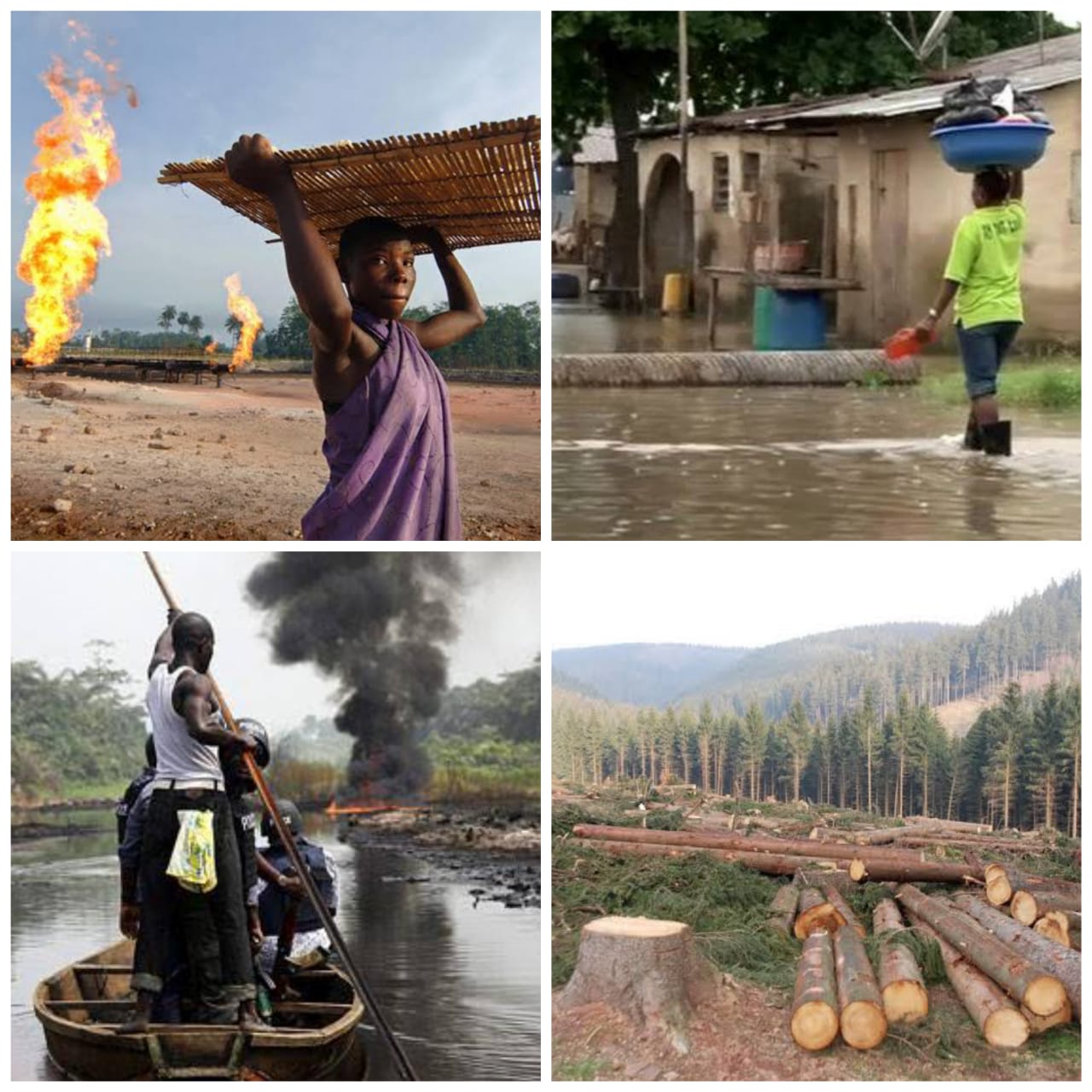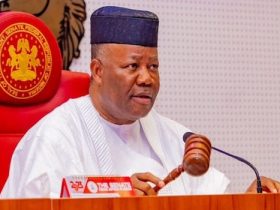Nigeria, Africa’s most populous nation, is currently facing an escalating environmental crisis as the relentless impacts of climate change wreak havoc from the northern regions to the southern coast.
Despite its relatively low contributions to global greenhouse gas emissions, Nigeria is bearing the brunt of the climate crisis.
The country is grappling with rising temperatures, erratic rainfall patterns, and extensive environmental degradation, all of which are having dire consequences for various states and millions of Nigerian citizens.
Root Causes of the Climate Crisis
Deforestation: One of the primary drivers of environmental degradation in Nigeria is deforestation. The clearing of forests for agriculture, logging, and infrastructure development has led to the loss of crucial carbon sinks and biodiversity.
Rising Temperatures: Increasing temperatures are causing prolonged heatwaves and contributing to desertification, particularly in the northern states of Sokoto and Kebbi.
Changing Rainfall Patterns: Erratic rainfall patterns are causing droughts in the north and severe flooding in the south. Lagos and Delta states are particularly vulnerable to these extreme climate events.
Oil and Gas Industry: Nigeria’s oil and gas sector, its economic backbone, has resulted in severe pollution and degradation in the Niger Delta region. Oil spills and gas flaring have inflicted extensive damage on the region’s ecosystems and the livelihoods of its inhabitants.
States Most Affected by Climate Change
Sokoto: The northern state of Sokoto is witnessing desert encroachment due to increasing aridity, which has reduced agricultural productivity and access to freshwater, exacerbating food security issues.
Lagos: Nigeria’s economic hub, Lagos, is especially susceptible to sea-level rise and coastal erosion. Residents in low-lying areas, such as Lagos Island, are at high risk.
Delta: The Niger Delta region, home to Nigeria’s oil industry, is grappling with oil spills, gas flaring, and the environmental consequences of these activities, leading to the loss of livelihoods and contamination of vital water bodies.
Borno: In the northeastern state of Borno, the shrinking Lake Chad Basin, driven by changing climate patterns, is exacerbating resource scarcity and conflict in the region.
Enugu: The southeastern state of Enugu is grappling with erosion and landslides caused by heavy rainfall, with its hilly terrain particularly susceptible to these effects.
Impact on Communities
Millions of Nigerians are facing displacement, food insecurity, and health issues due to these environmental changes. Many have been forced to migrate to urban centers, further straining resources and services.
The severe threat posed by climate change is evident, necessitating concerted efforts to mitigate its effects and build resilience among affected communities.
Recent Devastating Floods in 2022
In 2022, Nigeria experienced devastating floods, resulting in a tragic toll. At least 662 lives were lost, and 3,174 people sustained injuries, with approximately 2.5 million individuals displaced from their homes and 200,000 houses destroyed.
Efforts to Address Climate Vulnerabilities
In response to these challenges, Nigeria partnered with the World Bank through the Nigeria Erosion and Watershed Management Project (NEWMAP).
The project is focused on erosion and watershed management infrastructure, information services, climate action, and project management at federal and state levels.
However, challenges persist, with many Nigerian states facing flood risks and coastline threats. Desertification continues to contribute to deforestation, and climate change intensifies the frequency of natural disasters, prompting calls for more effective disaster management.
The government is considering new approaches, including climate adaptation programs to enhance national security, as recommended by the National Defence College.
In conclusion, Nigeria is grappling with severe consequences of climate change, flooding, and erosion, actively seeking solutions to protect its citizens and the environment.









Leave a Reply